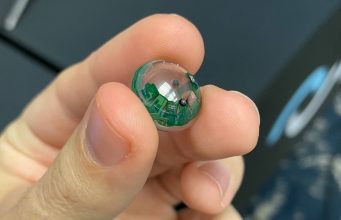Qualcomm announced at Mobile World Congress (MWC) today itís partnering with seven global telecommunication companies in preparation for the next generation of AR glasses which are set to work directly with the userís smartphone. Partners include CMCC, Deutsche Telekom,...


Qualcomm announced at Mobile World Congress (MWC) today itís partnering with seven global telecommunication companies in preparation for the next generation of AR glasses which are set to work directly with the userís smartphone.
Partners include CMCC, Deutsche Telekom, KDDI Corporation, NTT QONOQ, T-Mobile, Telefonica, and Vodafone, which are said to currently be working with Qualcomm on new XR devices, experiences, and developer initiatives, including Qualcommís Snapdragon Spaces XR developer platform.
Qualcomm announced Snapdragon Spaces†in late 2021, a software tool kit which focuses on performance and low power devices which allows developers to create head-worn AR experiences from the ground-up or by adding head-worn AR to existing smartphone apps.
Qualcomm and Japanís KDDI Corporation also announced a multi-year collaboration which it says will focus on the expansion of XR use cases and creation of a developer program in Japan.
Meanwhile, Qualcomm says OEMs are designing ďa new wave of devices for operators and beyondĒ such as the newly unveiled Xiaomi Wireless AR Glass Discovery Edition, OPPOís new Mixed Reality device and OnePlus 11 5G smartphone.
At least in Xiaomiís case, its Wireless AR Glass headset streams data from compatible smartphones. Effectively offloading computation to the smartphone, the companyís 126g headset boasts a wireless latency of as low as 3ms between the smartphone device to the glasses, and a wireless connection with full link latency as low as 50ms which is comparable to wired solution.
The post Qualcomm Partners with 7 Major Telecoms to Advance Smartphone-tethered AR Glasses appeared first on Road to VR.











